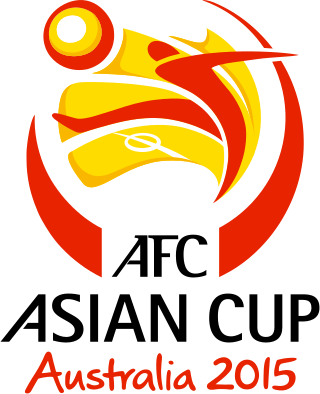| Asian TV Cup | |
|---|---|
| Full name | Asian TV Cup |
| Started | 1989 |
| Sponsors | NHK KBS CCTV |
The Asian TV Cup is a Go competition.
| Asian TV Cup | |
|---|---|
| Full name | Asian TV Cup |
| Started | 1989 |
| Sponsors | NHK KBS CCTV |
The Asian TV Cup is a Go competition.
The Asian TV Cup is the oldest continental tournament, dating back to 1989. The winners and runner ups of the biggest hayago competitions from Asia (Japan: NHK Cup, Korea: KBS Cup, China: CCTV Cup) battle in the biggest hayago tournament of all.
| No. | Year | Winner | Runner-up |
|---|---|---|---|
| 1 | 1989 | | |
| 2 | 1990 | | |
| 3 | 1991 | | |
| 4 | 1992 | | |
| 5 | 1993 | | |
| 6 | 1994 | | |
| 7 | 1995 | | |
| 8 | 1996 | | |
| 9 | 1997 | | |
| 10 | 1998 | | |
| 11 | 1999 | | |
| 12 | 2000 | | |
| 13 | 2001 | | |
| 14 | 2002 | | |
| 15 | 2003 | | |
| 16 | 2004 | | |
| 17 | 2005 | | |
| 18 | 2006 | | |
| 19 | 2007 | | |
| 20 | 2008 | | |
| 21 | 2009 | | |
| 22 | 2010 | | |
| 23 | 2011 | | |
| 24 | 2012 | | |
| 25 | 2013 | | |
| 26 | 2014 | | |
| 27 | 2015 | | |
| 28 | 2016 | | |
| 29 | 2017 | | |
| 30 | 2018 | | |
| 31 | 2019 | | |

The AFC Asian Cup is the primary association football competition contested by the senior men's national teams of the members of the Asian Football Confederation (AFC), determining the continental champion of Asia. It is the second oldest continental football championship in the world after Copa América. The winning team becomes the champion of Asia and until 2015 qualified for the FIFA Confederations Cup.

The Japan national football team, also known by the nickname Samurai Blue, represents Japan in men's international football. It is controlled by the Japan Football Association (JFA), the governing body for football in Japan.

The South Korea national football team represents South Korea in men's international football and is governed by the Korea Football Association. South Korea has emerged as a major football power in Asia since the 1980s, having participated in ten consecutive and eleven overall FIFA World Cup tournaments, the most for any Asian country. Despite initially going through five World Cup tournaments without winning a match, South Korea became the first Asian team to reach the semi-finals when they co-hosted the 2002 tournament with Japan. South Korea also won two AFC Asian Cup titles, and finished as runners-up on four occasions. Furthermore, the team won three gold medals and three silver medals at the senior Asian Games.

The North Korea national football team represents North Korea in men's international football and it is controlled by the DPR Korea Football Association, the governing body for Football in North Korea. The team represents both FIFA and Asian Football Confederation (AFC).
The Thomas Cup, sometimes called the World Men's Team Championships, is an international badminton competition among teams representing member nations of the Badminton World Federation (BWF), the sport's global governing body. The championships have been conducted every two years since the 1982, amended from being conducted every three years since the first tournament held in 1948–1949.

The FIBA Basketball World Cup is an international basketball competition between the senior men's national teams of the members of the International Basketball Federation (FIBA), the sport's global governing body. It takes place every four years and is considered the flagship event of FIBA.

EAFF E-1 Football Championship, known as the East Asian Football Championship from 2003 to 2010, and the EAFF East Asian Cup for the 2013 and 2015 editions, is a men's international football competition in East Asia for member nations of the East Asian Football Federation (EAFF). Before the EAFF was founded in 2002, the Dynasty Cup was held between the East Asian top four teams, and was regarded as the East Asian Championship. There is a separate competition for men and women.

The AFC Champions League Two is an annual continental club football competition organised by the Asian Football Confederation. It is the second-tier competition of Asian club football, ranked below the AFC Champions League Elite and above the AFC Challenge League.

Cho Chikun25th HoninboHonorary Meijin is a professional Go player and a nephew of Cho Namchul. Born in Busan, South Korea, he is affiliated to Nihon Ki-in. His total title tally of 75 titles is the most in the history of the Japanese Nihon Ki-in. Cho is the first player to hold the top three titles—Kisei, Meijin, and Honinbo—simultaneously which he did for three years in a row. Cho is the first in history to win all of the "Top 7" titles in Japan which he achieved by winning the Oza in 1994. Cho U in 2011 and Iyama Yuta in 2013 would duplicate this feat, both by winning the Kisei. He is also one of the 'Six Supers' Japanese players that were most celebrated in the late twentieth century, along with Rin Kaiho, Otake Hideo, Takemiya Masaki, Kato Masao and his classmate and arch-rival Kobayashi Koichi. He is the author of several books on Go.
The Jūdan is a Go competition in Japan. It is one of the seven major professional titles.
The Siptan was a South Korean Go competition. Begun in 2005, it was held eight times and was discontinued after 2013.
The Women's JAL Super Hayago was a Go competition.

The Pakistan national field hockey team represents Pakistan in international field hockey. Having played its first match in 1948, it is administered by the Pakistan Hockey Federation (PHF), the governing body for hockey in Pakistan. It has been a member of the International Hockey Federation (FIH) since 1948 and was founding member of the Asian Hockey Federation (ASHF), which was formed in 1958. Pakistan is one of the most successful national field hockey teams in the world with a record four Hockey World Cup wins.

Homare Sawa is a Japanese former professional footballer who played as a forward or a midfielder. Regarded by many as one of the greatest female footballers of all time and the greatest Asian female footballer of all time, Sawa had a professional club career spanning 24 seasons, mostly with Nippon TV Beleza and INAC Kobe Leonessa. She also spent 22 years with the Japan national team, most notably captaining them to a FIFA Women's World Cup win in 2011 and an Olympic silver medal finish in 2012.
Rugby union in China is a growing sport; however, it is still not overly popular. China became affiliated to the International Rugby Board in 1997 and as of 1 July 2019, its women's XV side was ranked 24th and its men's XV side 80th in the world. Neither the women's team nor the men's team has yet qualified for a Women's Rugby World Cup or a men's Rugby World Cup. However, China has hopes of one day hosting the men's event, and World Rugby has indicated it supports taking the event there.

The 2015 AFC Asian Cup was the 16th edition of the men's AFC Asian Cup, a quadrennial international football tournament organised by the Asian Football Confederation (AFC). It was held in Australia from 9 to 31 January 2015. The tournament was won by Australia after defeating South Korea 2–1 in extra time in the final, thereby earning the right to participate in the 2017 FIFA Confederations Cup, which was hosted by Russia. The win was Australia's first Asian title since their move from the Oceania Football Confederation (OFC) in 2006. It was also the first time a men's team has become champions of two confederations, following Australia's four OFC Nations Cup titles: 1980, 1996, 2000 and 2004; right after the Australian women's team won the 2010 AFC Women's Asian Cup. Australia thus became the final and permanent holder of the old AFC Asian Cup trophy, as the new trophy would debut in the tournament four years later.

The India women's national under-20 football team represents India in international women's under-20 football in the AFC U-19 Women's Championship and the FIFA U-20 Women's World Cup. It is controlled by the AIFF. They also participated in the 2021–22 Indian Women's League season, as Indian Arrows Women.

The 2023 AFC Asian Cup, also called the Asian Cup 2023 was the 18th edition of the AFC Asian Cup, the quadrennial international football tournament organised by the Asian Football Confederation (AFC). It involved 24 national teams after its expansion in 2019, with the host Qatar- the defending champions.
The Philippines men's national basketball team has competed in FIBA competitions for basketball clubs such as the FIBA Asia Champions Cup. In such cases the national team competed, they played under a club name, usually after a sponsor.